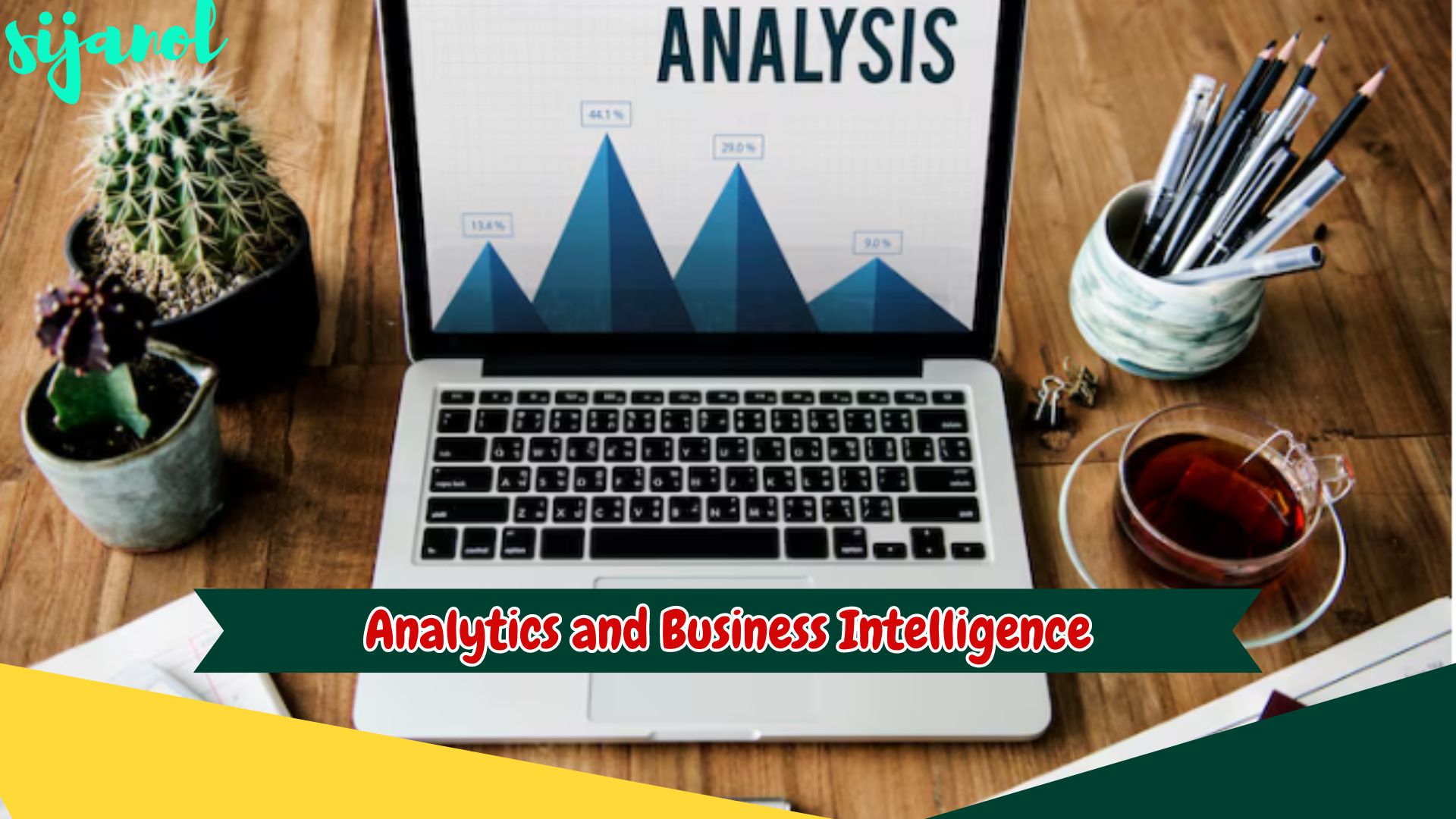Analytics and Business Intelligence – In the business world, Analytics and Business Intelligence involve collecting, analyzing, and interpreting data to support better decision-making. The benefits of Analytics and Business Intelligence include enhanced operational efficiency, optimized business strategies, and increased profitability.
4 Benefits of Analytics and Business Intelligence
The benefits of analytics and business intelligence are numerous and can significantly impact business performance. By leveraging data effectively, companies can make better decisions, enhance operational efficiency, gain deeper customer insights, and achieve a competitive edge. Here are four key benefits of analytics and business intelligence:
- Improved decision-making
- Enhanced operational efficiency
- Better customer insights and personalization
- Increased competitive advantage
Below are detailed explanations of each of these benefits:
1. Improved decision-making
Improved decision-making – Leveraging analytics and business intelligence allows organizations to gather and analyze data more effectively, facilitating data-driven decision-making. This reduces uncertainty and improves the accuracy of business planning and strategy.
2. Enhanced operational efficiency
Enhanced operational efficiency – By utilizing analytics and business intelligence, companies can identify areas for improvement within their operations. Accurate analysis enables process optimization, waste reduction, and productivity enhancement, ultimately lowering operational costs.
3. Better customer insights and personalization
Better customer insights and personalization – Analytics and business intelligence allow companies to better understand customer behavior and preferences. This facilitates the personalization of products and services, enhancing customer satisfaction and loyalty.
4. Increased competitive advantage
Increased competitive advantage – With deeper and more accurate insights from analytics and business intelligence, businesses can develop more effective strategies to compete in the market. This advantage enables companies to respond quickly to market changes and trends, and to identify new opportunities ahead of competitors.
In summary, implementing analytics and business intelligence in business processes not only improves performance but also provides a strong foundation for growth and innovation. Companies that optimally utilize these technologies will be better positioned to face challenges and achieve long-term success.

The Interplay Between Analytics and Business Intelligence
The interplay between analytics and business intelligence is crucial for modern businesses aiming to leverage data for strategic advantage. Here are the key points illustrating how these two disciplines complement each other:
1 Complementary Nature:
- Analytics focuses on understanding and interpreting data, while business intelligence is about using that data to inform decision-making.
- Analytics provides the insights needed for BI to create meaningful reports and dashboards.
2 Integration of Analytics into BI Systems:
- Advanced analytics techniques, such as predictive modeling and machine learning, are increasingly being integrated into BI platforms.
- This integration enhances the ability of BI systems to provide forward-looking insights rather than just historical data.
3 Case Studies of Successful Integration:
- Many businesses have successfully integrated analytics into their BI systems, leading to improved decision-making and operational efficiency.
- Examples include companies using predictive analytics to forecast sales trends and adjust their strategies accordingly.
Understanding this interplay is essential for businesses to fully harness the power of their data. By combining the strengths of both analytics and business intelligence, organizations can achieve a comprehensive view of their operations and make more informed decisions.

Tools and Technologies
In the realm of analytics and business intelligence, various tools and technologies play a critical role in data analysis and decision-making. Here are the key tools and technologies:
1 Analytics Tools:
- R: A programming language and software environment used for statistical computing and graphics, widely utilized for data analysis and visualization.
- Python: A versatile programming language with extensive libraries for data manipulation, analysis, and machine learning, such as Pandas, NumPy, and Scikit-learn.
- SAS: A software suite developed for advanced analytics, multivariate analysis, business intelligence, and data management, popular in many industries.
2 Business Intelligence Tools:
- Tableau: A powerful data visualization tool that enables users to create interactive and shareable dashboards, facilitating easy data exploration and insights.
- Power BI: A business analytics service by Microsoft that provides interactive visualizations and business intelligence capabilities with an interface simple enough for end users to create their own reports and dashboards.
- QlikView: An end-to-end data management and analytics platform that helps organizations to discover deeper insights by making data-driven decisions.
3 Criteria for Selecting the Right Tools:
- Data Needs: Evaluate the type of data and the complexity of analysis required.
- Ease of Use: Consider the user interface and the learning curve associated with the tool.
- Integration Capabilities: Ensure the tool can integrate with existing systems and data sources.
- Scalability: Assess the ability of the tool to handle growing data volumes and increasing analytical demands.
- Cost: Analyze the cost of the tool relative to the budget and potential ROI.
Selecting the appropriate tools and technologies is vital for maximizing the effectiveness of analytics and business intelligence efforts. These tools enable organizations to efficiently process, analyze, and visualize data, leading to better-informed decisions and strategic advantages.
Read Also: 3 Benefits of Microsoft Business Intelligence

Challenges and Considerations
In implementing analytics and business intelligence, various challenges and considerations must be addressed. Here are the key challenges and considerations:
1 Data Quality:
- Ensuring data accuracy and completeness is essential for reliable analysis and decision-making.
- Poor data quality can lead to incorrect insights and flawed business strategies.
2 Data Integration:
- Integrating data from multiple sources can be complex and time-consuming.
- Effective data integration is crucial for providing a comprehensive view of business operations.
3 Skill Gaps:
- There is often a shortage of skilled professionals who can effectively use analytics and BI tools.
- Investing in training and development is necessary to bridge this gap.
4 Data Governance:
- Establishing robust data governance policies is critical for maintaining data integrity and security.
- Clear guidelines and procedures must be in place to manage data access, usage, and compliance.
5 Scalability:
- The chosen tools and technologies must be able to handle increasing data volumes and analytical demands as the business grows.
- Scalability is essential for long-term success and sustainability.
6 Cost:
- Implementing and maintaining analytics and BI systems can be expensive.
- It is important to evaluate the cost-benefit ratio to ensure a positive return on investment.
7 Change Management:
- Transitioning to new analytics and BI systems may face resistance from employees accustomed to traditional methods.
- Effective change management strategies are required to ensure smooth adoption and implementation.
Addressing these challenges and considerations is crucial for the successful implementation of analytics and business intelligence initiatives. By proactively managing these aspects, organizations can optimize their data-driven decision-making processes and achieve better business outcomes.





